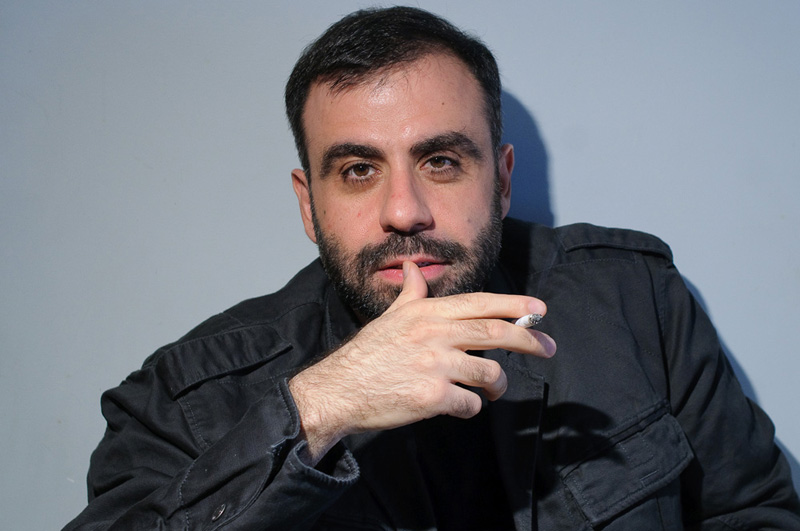A very small season of films at Zvezda cinema in Moscow of films by members of the Moscow School of New Cinema allowed me yesterday to watch two rarely shown films. In spite of the fact that these films were shown at one of the cinemas with the smallest capacity in the city, the cinematic significance of Dmitry Mamulia (whose films introduced the season of four film-makers) belies the difficulty with which his works have in finding an audience. Mamulia has set out on a path very different to both mainstream and arthouse directors in Russia and has brought some of the most original aspects of certain masters of European cinema into the forefront. It's hard not to think of the Dardenne brothers Rosetta constantly moving inside a labyrinth which defeats her when observing the hero of Другое небо (Another Sky). The experience of Bela Tarr is there, somewhere, too and, yet another film which Mamulia referred to in a Q&A session after the film was Visconti's Rocco e i suoi fratelli (Rocco and his Brothers). With the proviso that, of course, the drama of Visconti is impossible nowadays. Shooting a film whose subject matter touches upon the arrival of an immigrant to Moscow can only resemble the arrival of immigrants to Milan in the post-war economic boom by presenting that interminable labyrinth but without the slightest hint of pathos or emotion. Mamulia accomplishes this by excising all emotion on the face of the actor and even removing most traces of dialogue. The hero is surrounded by sounds but the tragedy of which he is at the centre of comes about off-screen.
Mamulia worked alongside Bakur Bakuradze on the first film shown yesterday evening Москва (Moscow). Mamulia and Bakuradze have been friends since their days together in Tbilisi and this rather unique document of their work together provides more than a clue as to their interest in capturing contemporary reality. A film that once again taking as its theme immigration manages to unite the harsh reality of the slave-like existence of Russia's gastarbeiters with a sense of the incredibly poetic imagery of interiors. Yet the reason for choosing the gastarbeiter as protagonist of his films can hardly be a purely social one. Mamulia is not a social realist and nor, in Another Sky, has he made a film like Svetlana Baskova's За Маркса (For Marx) with its Brechtian and Godardian didactics. Rather he has built a film without a script working on a rather simple precept. The arrival of father and son to Moscow, the search for an ex-wife and the off-screen tragedy which, in a way, determines (sacrifice or not?) the silent, unemotional reunion that we see at the end. Any script is almost superfluous because in a way it is reality sculpting in the details and here this ability of Mamulia's to experiment somewhere on the border between documentary and feature draws out his real strength as film-maker.
Yet for all this lack of emotion and drama, this lack of dialogue, the presence of the camera on the protagonists back of his head as he walks through this endless labyrinth of a city that, filmed by Alisher Khamidkhodzhaev, is captured in a way not altogether dispelling the poetic magic of Pasolini's periferie. Poetry and realism, in that very Pasolinian sense, are back on the agenda here. If as Mamulia once quipped in an interview, his ideal spectator is the dead viewer one can only envy them given the fruitful cocktail that he seems to be offering us. The seeds that Mamulia (and his fellow film-maker Bakuradze) are planting give one a reason to hope that cinema in Russia has not died the death decreed for it by the thousand idiocies foisted upon it by its government, its audiences and its own cinematic elites. But then, as usual, cinema in Russia was always rescued by its outsiders and those who it was only too willing to exclude.
Mamulia is presently in the process of working on two projects - one of which is to be filmed in India. As he mentioned yesterday in Zvezda he is working on a film based on the strange end of Herbert von Kleist.





No comments:
Post a Comment